No matter how much you currently use digital marketing, it is important to become familiar with the abbreviations and terminology being used. According to reports, businesses are projected to have enormous increases in their digital marketing budgets over the next four year, jumping from $57 billion to a whopping $103 billion by 2019.
The following are some of the most important digital marketing terms that can help you understand current marketing trends.
- CTR: Click through rate. CTR identifies the number of people who click on a link, such as those sent out in emails or placed on webpages.
- Domain Authority: Domain authority refers to the 1-100 scale of how authoritative search engines view your website to be, with 1 being the lowest and 100 being the highest. The higher your domain authority score, the more likely your page is to appear higher in search engine results.
- Keyword Stuffing: Keyword stuffing is the idea that putting more keywords on your page will increase its SEO. However, the opposite is true; keyword stuffing can cause you to be penalized by many search engines.
- Landing Page: The landing page is the page people are directed to as the entry point for the site.
- META Description: The META description is the 1-2 lines of text that appears in search engines beneath the title tag.
- Organic Traffic: Organic traffic is created when people find your website through a search engine. Because they are organically finding your page, there are no advertising costs involved.
- Paid Traffic: In the broadest terms, paid traffic refers to any form of paid advertisement that leads people to your website. Paid traffic can be generated in a number of ways, including keyword and search engine ads.
- PPC: Pay-per-click. PPC ads are often shown as top results on search engines and can also be imbedded into blogs or YouTube channels. Advertisers are only charged when an ad is clicked, meaning you’re only paying for those interested in your ad.
- SEO: Search Engine Optimization. SEO helps a website appear higher on search engines such as Google. Rank is determined by complex algorithms that include factors such as backlinks, keywords, organization, and quality content.


 RSS Feed
RSS Feed
